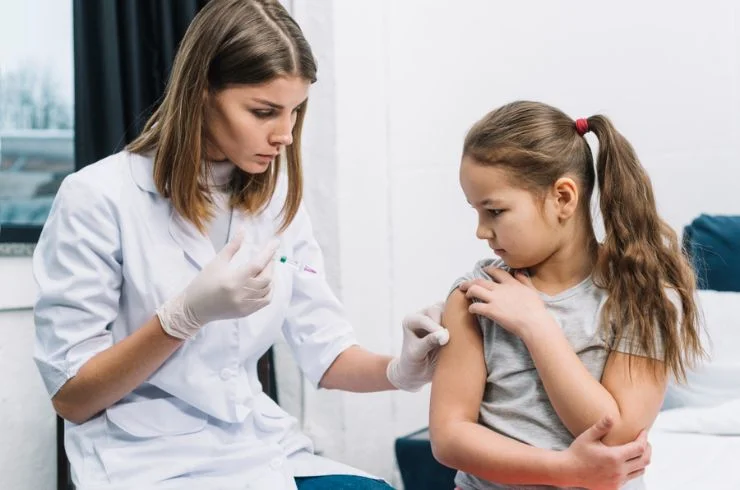
Pediatric infectious diseases encompass a wide range of illnesses caused by viruses, bacteria, parasites, and other pathogens that affect children. These diseases can vary in severity and can have significant impacts on a child’s health, well-being, and development. At our pediatric practice, we are committed to providing comprehensive care, support, and education to children and families affected by infectious diseases. At our pediatric practice, we prioritize thorough care and education to address the diverse spectrum of infectious diseases, offering families the support they need to navigate diagnosis, treatment, and prevention strategies effectively.
We aim to empower children and their caregivers with knowledge and resources, promoting optimal health outcomes and minimizing the impact of infectious illnesses on their lives.
Accurate Diagnosis:
Utilization of advanced diagnostic techniques, including laboratory tests and imaging studies, to accurately identify the causative agents of infectious diseases.
Thorough evaluations conducted by our experienced medical professionals to assess the severity and complications of pediatric infectious diseases.
Personalized Treatment Plans:
Tailored treatment plans designed to address the specific pathogens and clinical manifestations of each pediatric infectious disease.
Access to a range of therapeutic options, including antimicrobial medications, antiviral agents, and supportive care measures, to effectively manage infectious diseases and promote recovery.
Preventive Measures:
Education and guidance on preventive measures, including vaccinations, hygiene practices, and environmental control measures, to reduce the risk of pediatric infectious diseases.
Counseling on infection prevention strategies for parents and caregivers to protect children from exposure to contagious pathogens.
Infection Control:
Implementation of stringent infection control measures within our hospital premises to minimize the spread of infectious diseases and protect patients, families, and healthcare staff.
Compliance with national guidelines and protocols for infection prevention and control to ensure a safe and hygienic healthcare environment.
Emergency Care:
Timely and efficient emergency services available for children experiencing severe infectious disease symptoms or complications.
Availability of specialized medical personnel and equipment to provide immediate intervention and support during pediatric infectious disease emergencies.
Family Support and Education:
Involvement of parents and caregivers in the treatment process, providing support and guidance for managing pediatric infectious diseases at home.
Education on recognizing signs and symptoms of infectious diseases, adhering to treatment plans, and seeking medical attention when necessary.
Follow-up Care and Monitoring:
Regular follow-up appointments to monitor treatment progress, assess response to therapy, and address any concerns or complications.
Collaboration with pediatricians, infectious disease specialists, and other healthcare professionals to ensure comprehensive care and optimize health outcomes.